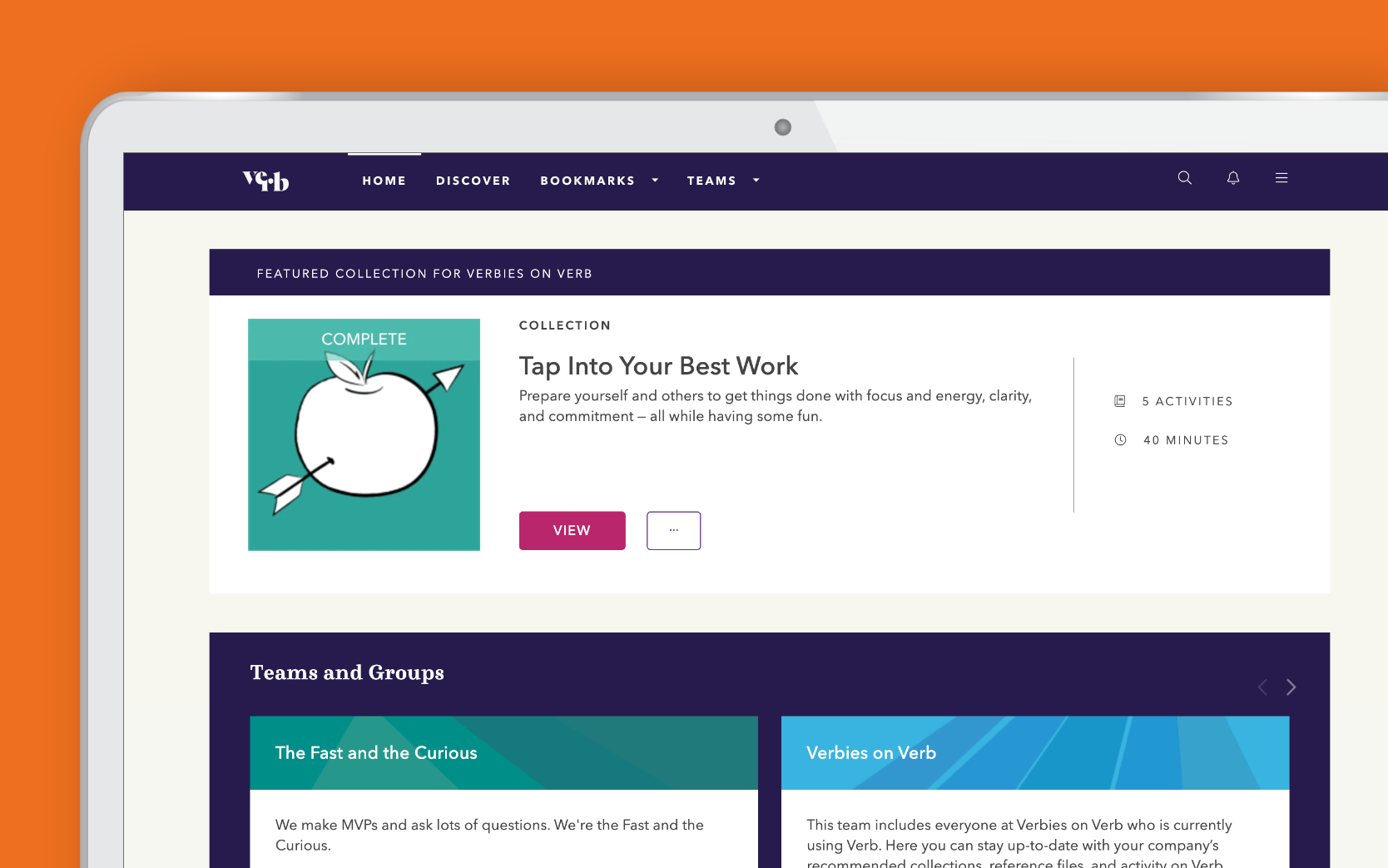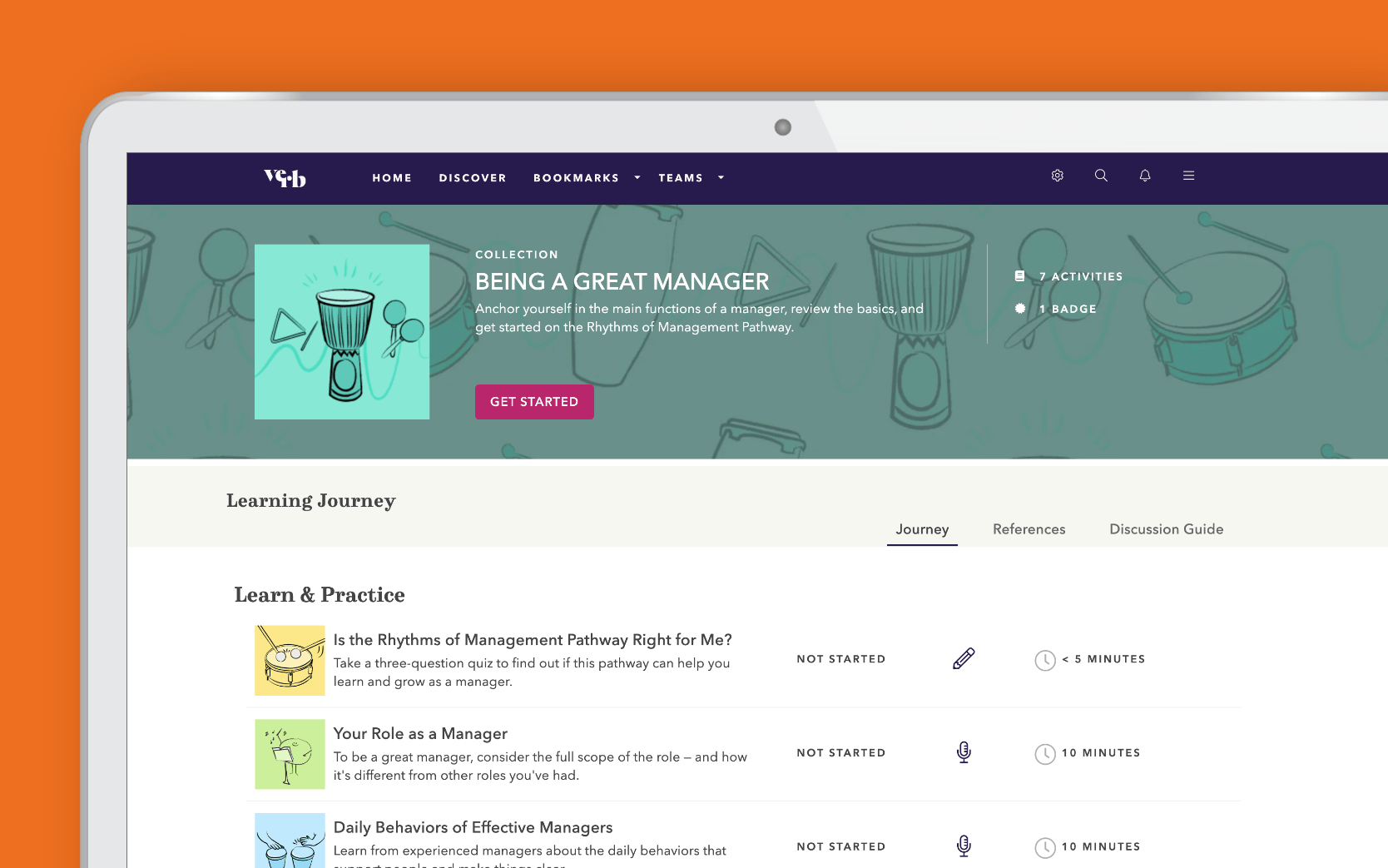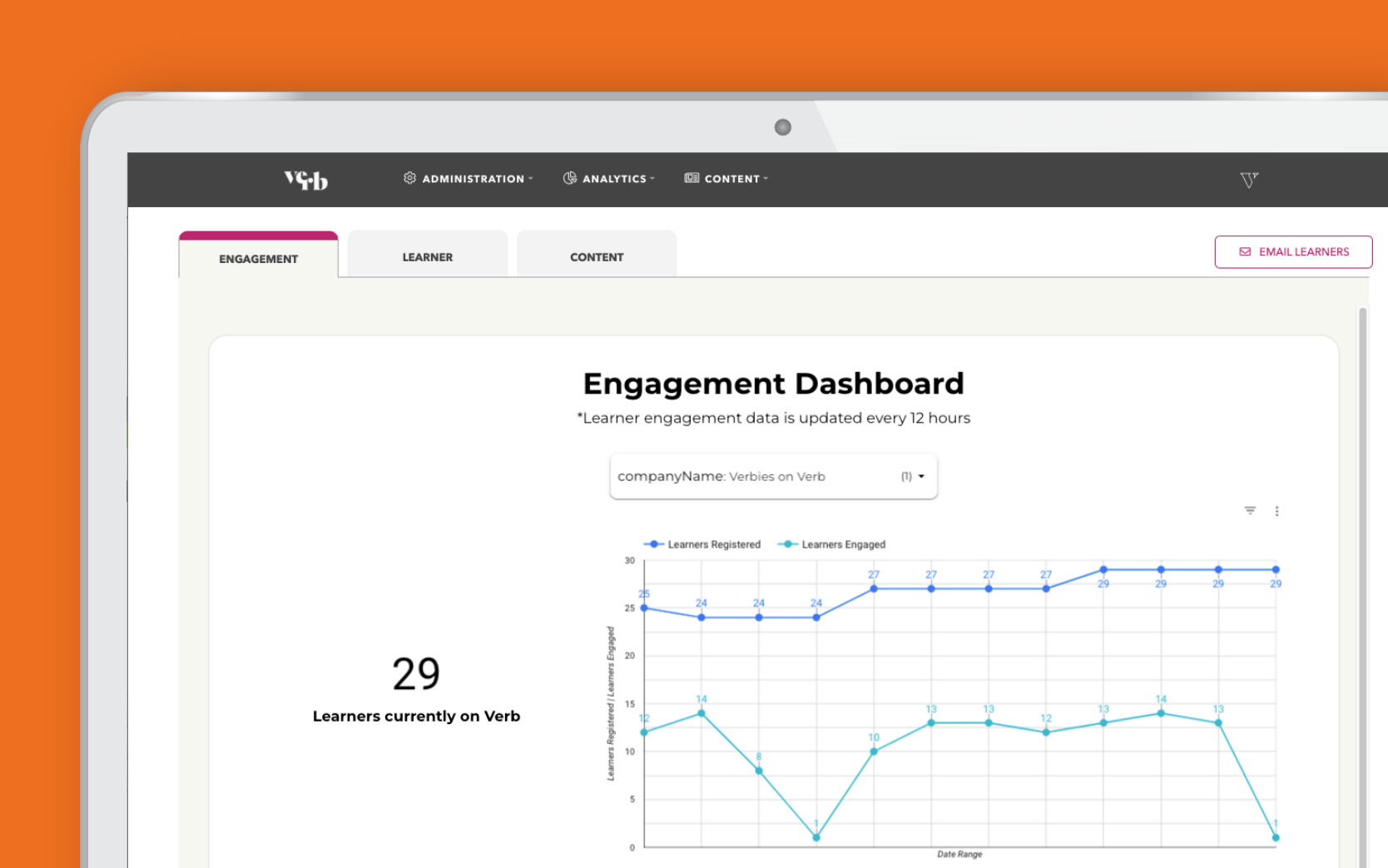Learning & Development Journeys
Verb is Now a Paycor Company
Paycor is committed to serving Verb customers without service disruption. You will continue to have access to the expertly built content library and the pre-built and custom development journeys you rely on today.
Verb customers will also have the opportunity to take advantage of Paycor’s entire HCM platform, which helps business leaders recruit, manage, and pay their people. It gives them more time back in their day to focus on bigger priorities like employee engagement, performance management, and talent development.
Discover the Paycor Difference
Commitment to Support
Paycor and Verb share a dedication to putting the customer first. Our support teams are always available to offer assistance and expertise. Verb’s customers will continue to be assisted by the same knowledgeable support team and can access the Knowledge Base for advice, best practices, and training videos. For additional support, please open a support ticket.

Behavioral Science-Based Micro-Learning for Leaders
Verb accelerates the development of Paycor Paths, an innovative new product designed to help organizations establish and deliver personalized, scalable, and engaging learning and development journeys for frontline leaders and their teams. Paycor Paths enables HR and L&D leaders to create unique, custom development journeys that inspire positive and sustainable behavior change within their frontline leaders and employees.

Select Product Features

Ready-to-Go —
Launch ready-to-go programs to get learners started quickly. Launch programs in days rather than months, with expertly built learning content that drives action and real behavior change.

Build-Your-Own —
Create your own program or customize a pre-built program with a library of 100+ hours of original content that addresses a variety of training needs for managers and their frontline teams. Easily add your own content, events, Zoom links, tasks, and discussions.

Reporting and Analytics —
Share the impact of your learning programs with in-platform dashboards and reports.
FAQs:
Paycor’s mission is to empower leaders to build winning teams. HR departments are often responsible for owning culture change in an organization. Development programs are the tools that drive this type of change but deploying these programs is time-consuming and often requires leadership expertise that most businesses simply do not have. By equipping leaders with the data that highlights opportunities for improved performance, organizations can invest in their frontline leaders and managers with program development and ultimately increase employee engagement and company-wide retention. Paycor is dedicated to giving leaders the technology and expertise they need to succeed.
Verb’s innovative learning and development platform and proprietary bite-sized content combined with Paycor Paths, will revolutionize the way organizations develop their employees. Verb is excited to help companies create a culture of continuous learning and development that enables employees to acquire critical skills and knowledge. Together, Paycor and Verb are empowering businesses to build winning teams and drive success in the modern workplace.
Verb is a people development platform that empowers L&D teams to quickly design, launch, and track their soft skills training programs. Through expertly built, ready-to-go programs and the flexibility to adapt and customize, it’s easy for leaders to address the various learning needs across their company, such as manager training, leadership development, onboarding, DE&I, and more. Verb measures the results that matter, giving a deeper understanding of learners’ behavioral data and personalized recommendations to ensure leaders are giving the best learning possible to their employees.
Yes, we expect Verb to be fully integrated with Paycor by the end of calendar year 2023.
Your Verb experience will not be affected! You can explore Paycor’s full suite of solutions to see the benefits of becoming a member of the Paycor family!
For more information about Paycor’s full suite of solutions, contact our sales team at 844-914-3203.
For more information about Verb, contact your Paycor representative or call sales at 844-914-3203.
Want to Learn More?
Paycor’s HR solutions modernize every aspect of people management, from the way you recruit, onboard and develop people, to the way you pay them, retain them and build a company culture.

Resources
Explore our resource center to uncover articles, guides, webinars, infographics and more — all designed to help leaders unlock the true power of HR.
Live Webinar
Health & Wellness Series: Unraveling the Science of Burnout – Strategies for Lasting Change in Today’s Workplace
Retaining talented individuals is a never-ending challenge. It’s just as tough to discover outstanding talent and persuade them to pick you over their competitors. One of the biggest challenges to today’s workforce is burnout. It’s the leading cause of turnover in 2023, according to Forbes.
2:00pm ET, May 14th, 2024
Article
Read Time: 9 min
Rethinking Employee Appreciation: 10 Ways to Celebrate Your Team
Workplace celebrations don’t just lower turnover – they can also boost revenue. Find out how HR can impact this with these 10 recommendations.
Live Webinar
Health & Wellness Series: Simple Strategies to Partner with Employees on Wellbeing
In this webinar we will emphasize the goal of creating a healthier workplace environment through the implementation of a wellbeing program.
2:00pm ET, May 30th, 2024
Live Webinar
Health & Wellness Series: Culture Matters – Thriving in the Age of Burnout
Burnout has become increasingly prevalent and it is crucial for organizations to address this issue head-on. During this webinar, we will delve into the concept of “You Only Live Once” (YOLO) and how it relates to creating a thriving work environment.
11:00am ET, May 30th, 2024




